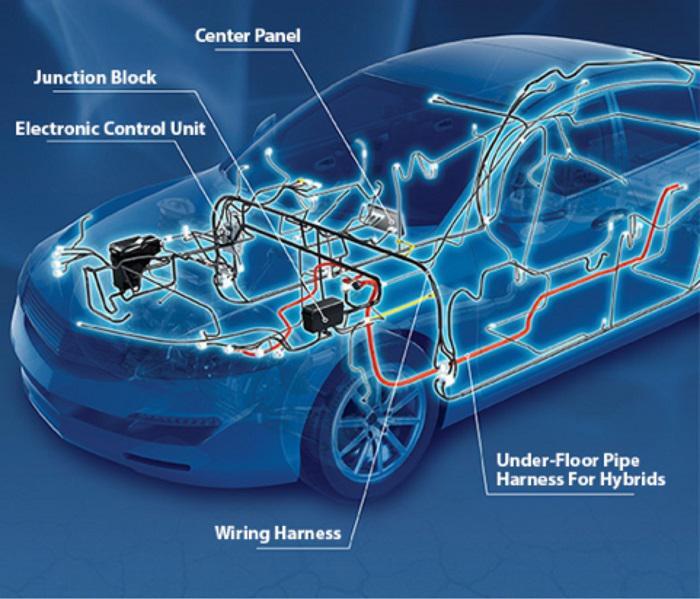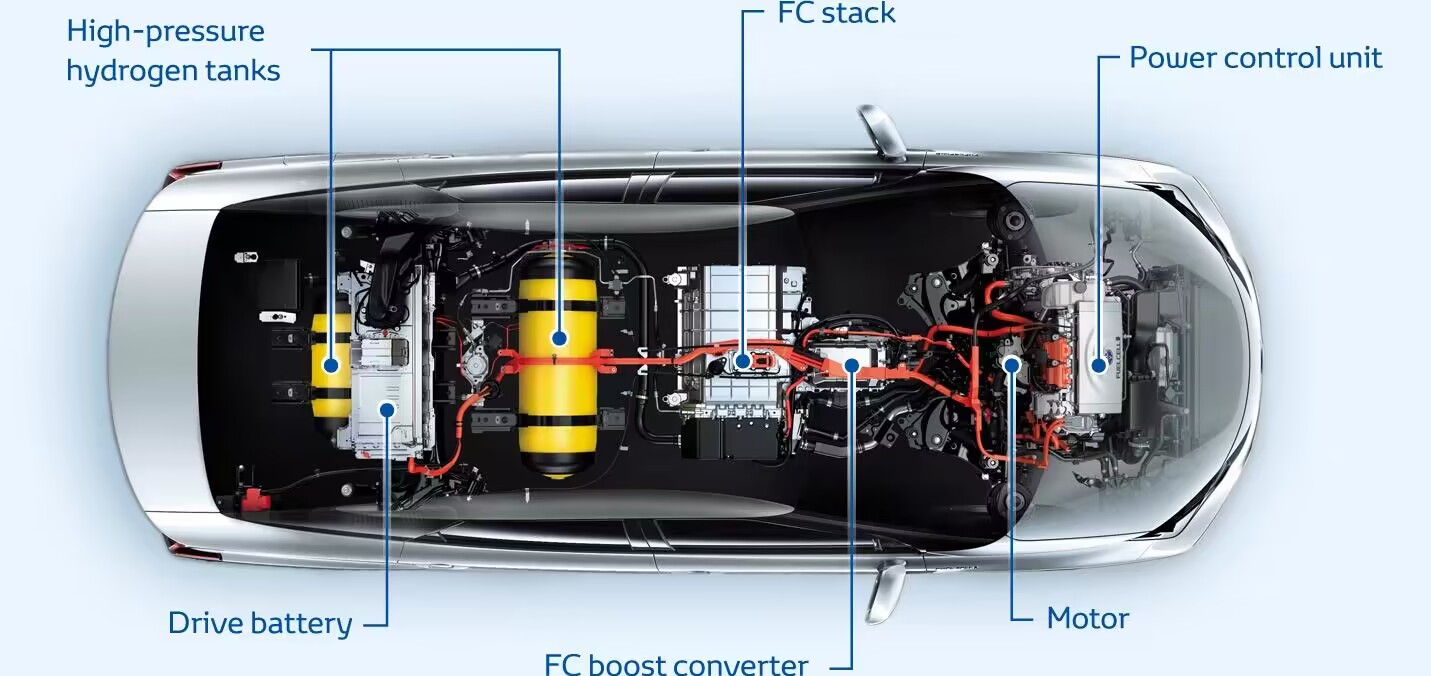The global megatrends result in more and new types of wire being installed in vehicles. These will act as key drivers of the steady rise in demand for automation solutions for reasons of quality, efficiency, complexity, cost, miniaturization, and traceability.
Emission reduction and electromobility
Growing environmental awareness on the part of consumers and the associated goal of emission-free vehicles are among the megatrends that will support the industry’s business in the long term. A key role will be played in this respect by e-mobility.

Growing connectivity in vehicles
Another megatrend is increasing interconnectedness. Infotainment systems in vehicles are becoming increasingly comprehensive and complex, while integrated information systems are laying the basis for the future: autonomous driving.
Improved safety
The need for greater road traffic safety represents a further megatrend. Here the emphasis is now no longer just on protection in the event of an accident, but above all on avoiding accidents. As a consequence, the number of sensors in vehicles will continue to rise.
Cost efficiency for affordable vehicles
Finally, a global megatrend towards affordable vehicles is emerging. This requires greater cost efficiency in manufacturing, which in turn is increasing the pressure to automate wire processing further.
More wires per vehicle
Innovations in vehicle construction, new functionalities, and an ever-rising fit-out level in all vehicle classes are leading to a further increase in demand for wires and crimp contacts in the automotive industry. This trend, which has been perceptible for a number of years now, will strengthen further in the future. Accordingly, the number of wires that need to be assembled per vehicle is on the rise.
Low degree of automation
A large part of the wire harness manufacturing process is still done by hand, but rising wage costs, an increasing lack of personnel and sources of error caused by the increasing complexity support investments in automation. Intelligent automation solutions, quality assurance tools, and systems for testing harnesses help to guarantee efficiency and reliability of the production process. Therefore, automotive manufacturers, increasingly calling on their suppliers to further automate their production processes.
Simplification of the wiring harness and miniaturization
Wire harnesses in vehicles are becoming increasingly complex, which presents challenges for automatic production. Therefore, automotive manufacturers are seeking to simplify the wire harness. Zonal electrical systems with several smaller wire harnesses rather than one big one will reduce wire length, but not necessarily the number of wires used, and this is the key element for Komax. Simpler wire harnesses with shorter wires will help significantly increase the degree of automation in processing. Another factor driving automation is the ongoing miniaturization of wires, which makes manual processing increasingly difficult or even impossible.
Global megatrends unchanged by coronavirus pandemic
The coronavirus pandemic weighed heavily on the automotive industry, with the result that production figures for 2020 and 2021 were significantly down on previous years. Most of them only resumed investment in capacity expansion as 2021 progressed. The aforementioned fundamental drivers for a higher degree of automation in wire processing nevertheless had an impact. The coronavirus pandemic has strengthened customers' recognition that there is no way of avoiding the trend towards automation.
Our markets
Focus on four market segments
Automotive
This is by far the most important market segment for Komax. In no other industry is the volume of wires to be processed so large. With 70 to 90 million vehicles currently produced each year, each of which contains an average of around 1,600 wires with 2,600 crimp contacts, the demand for automation solutions is enormous. An increase in electrical functions further accelerates demand. And there is still plenty of potential for additional automation steps, as wire harnesses are still manufactured by hand to a large extent.

Data/telecom
The transfer of large volumes of data and the permanent networking of people have become standard practice in the data/telecom market segment. The wiring used for these applications is being increasingly used in vehicles too, as cars become ever more interconnected, with comprehensive information systems that will facilitate autonomous driving in the future.
Aerospace
Safety, lightweight construction, and lower emissions have been at the forefront of developments in aerospace. The barriers to entry are very high for suppliers and there is still very little automation of wire processing in the industry.
Industrial
The processing of wires for industrial applications such as control cabinets often involves working with very small batches. To ensure that automation is nevertheless a cost-efficient option for control cabinet manufacturers. Automated wire processing is now increasingly finding its way into industrial applications.








